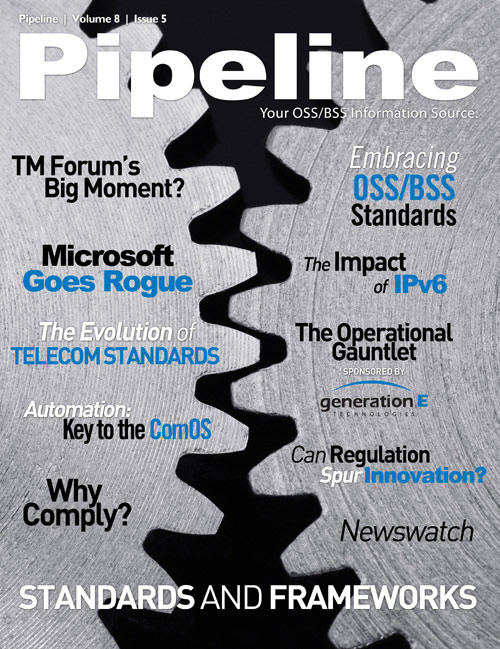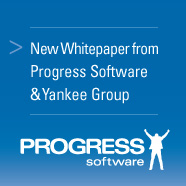Article Index
Frameworx: TM Forum’s Big Moment?
By Tim YoungWhen it comes to standards specific to the telecom OSS/BSS space, a conversation is rarely complete without some mention of the TM Forum (TMF).
» read this article
The Evolution of Telecom Standards
By Cliff HaleviOnce upon a time, prior to 1984, in a world that now seems like a very long time ago, the world of telecom standards was a rather simple matter. Back then, AT&T’s Bell Labs would invent technologies and design the equipment, AT&T’s Western Electric would build the equipment, and AT&T’s Long Lines Department and local Bell Operating Companies would procure and deploy the equipment. A perfect closed system. The system was stable and it worked, but the stability of a monopolistic system also meant that the pace of technology introduction was very slow as the forces of competition and innovation were not yet part of the landscape. The breakup of AT&T in the early 80’s, and the divestment of its local carrier and manufacturing arms meant a sea change in the industry and this change was reflected in the evolution of the standards development organizations that arose to address the needs of a reinvented industry.
» read this article
Microsoft Goes Rogue
By Scott St. JohnThe customer relationship management software (CRM) landscape for communications service providers (CSPs) has been largely dominated by industry-giants, Amdocs (NYSE: DOX) and Oracle (NASDAQ: ORCL). But why and at what cost?
» read this article
The Operational Gauntlet: Efficient Operational Support is the Key to Out-Innovating Your Competition
By Casey KindigerInformation and communications networks have become too big and too complex for cost-effective management by traditional operational support system (OSS) methods and tools. The spectrum of next- generation capabilities has rapidly evolved beyond VoIP to include mobile video, cloud explosion and onwards. Each step forward disrupts legacy business models yet also opens new doors to human experience and business exploitation. As much as these technological advances have required a re-evaluation of business and service methodology, so too do they also demand a re-assessment of current notions of OSS and business support systems (BSS) practices.
» read this article
Regulation Drives Innovation
By Tim YoungWhat’s the relationship between regulation and prosperity?
» read this article
From Bespoke to Standard, Embracing OSS/BSS Standards
By Sanjay MewadaThe pressure for OSS/BSS suppliers to embrace standards has increased as a result of a collective desire on the part of Communications Service Providers (CSPs) to offer more value-added services to a diverse set of industry verticals such as mobile commerce, banking, transportation, and retail. This is the next step in the communications IT evolution from a predominantly bespoke, or custom, software industry; through the COTS, best-of-breed and best-of-suite eras; to a period of predictability and interchangeability where implementation risk and complexity are minimized and where vertical-specific variants of enterprise-grade solutions can be extended to major end users.
» read this article
IPv6 to the Rescue!
By Jesse CrydermanIt's hard to talk standards without covering a standard that touches every piece of IP-based traffic on the planet: Internet Protocol, or IP.
» read this article
Why Comply?
By Jesse CrydermanNavigating the world of telecom standards is like swimming in a sea of alpha-numeric soup. Misread a letter and you could be talking about streaming-video QoS metrics instead of VoIP protocol. Indulge in a cursory swim through this sea, however, and eventually some acronyms pop up more frequently than others. Beyond signifying the iteration of a standard in its historical hierarchy (OC-768 logically offers more bandwidth than OC-48), standards enable interoperability, ensure regulatory compliance, actuate security measures, and are often times crucial components of a proposal.
» read this article
Automation: Key to the ComOS
By Jesse CrydermanPhilosopher Karl Popper defined the difference between open and closed societies in terms of how much or how little bloodshed is required to overthrow their leaders. From an OSS/BSS perspective, we can’t examine how open standards enable interoperability without first looking at the past.
» read this article
Newswatch - October 2011
By Jesse Cryderman» read this article
Letter from the Editor
By Tim Young“The United States in Congress assembled shall have the sole and exclusive right and power… [of] fixing the standard of weights and measures throughout the United States…” -The Articles of Confederation, ratified 1781.
» read this article








